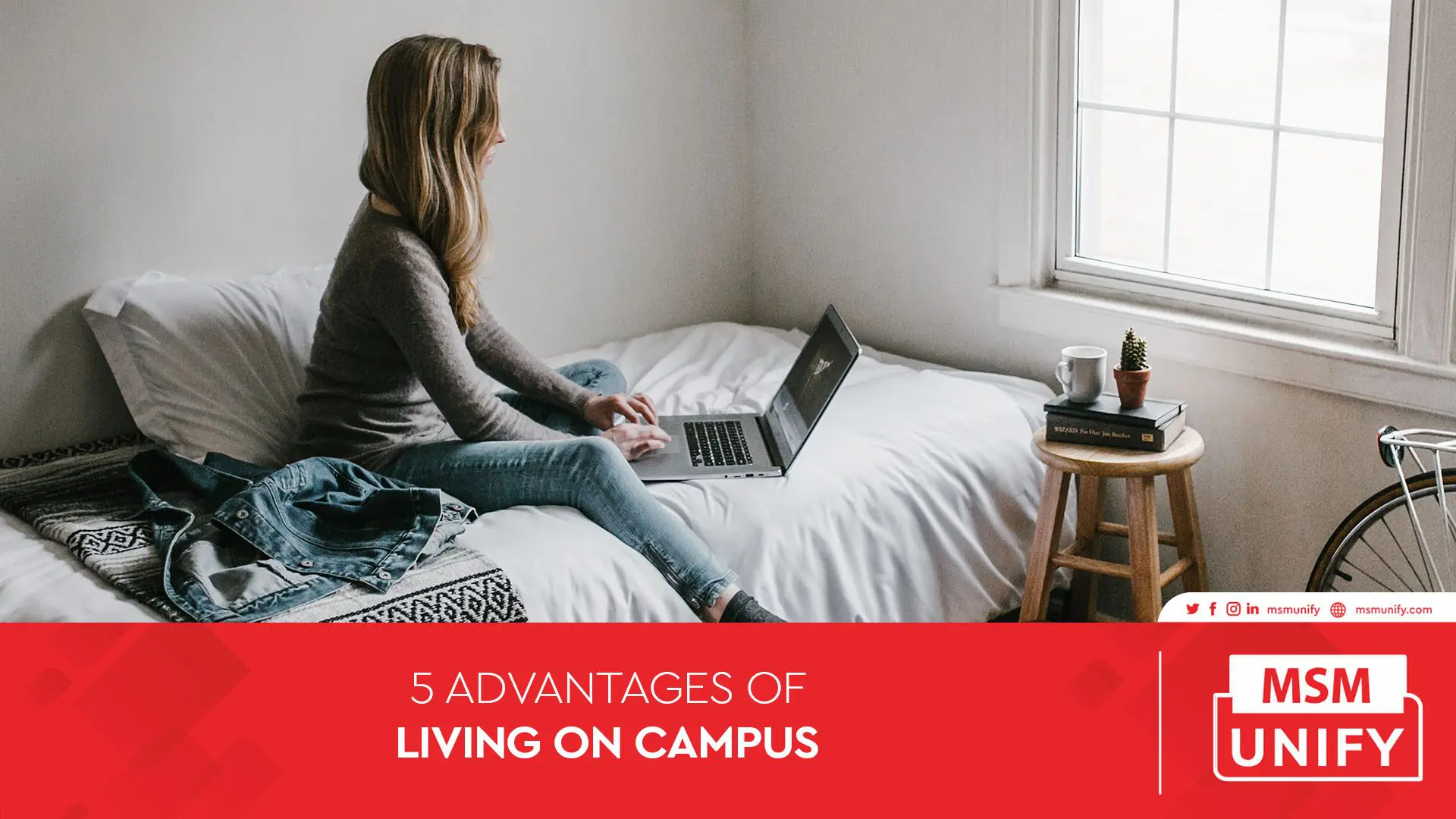Deciding where to live is a challenging task for international students. Here’s a brief guide on the benefits and hassles of living on-campus.
As you prepare to study at your chosen university, you may have more decisions to make, such as picking a field of study to take and packing your luggage. One major thing to consider during this phase is whether you will live on- or off-campus.
Before making a decision, there are various factors to assess first. Whether it may be based on financial concern, accessibility, or comfort, looking at each factor can bring both good and bad to light.
We have outlined the living on-campus’ pros and cons to help you weigh the differences:
Should You Live on Campus or off Campus
The Pros
Class proximity
Living on-campus is a good choice for your time management. You are at school at all times. Meaning, you will be physically close to class. You will not be burdened by commuting, running late, and transportation expenses. You can sleep for a couple more minutes, unlike those who live far from school.
The experience
On-campus accommodation is a once-in-a-lifetime experience for international students. You will have more time exploring the school grounds and learning about campus culture. So, do it if you feel that it is something that you want to experience.
Amenities
Convenience goes beyond just cleaning and cooking in university housing. The majority of dorms offer amenities like free Wi-Fi, cable TV, fully furnished rooms, on-site assistance, security, and even on-site gyms, shops, and laundry shops. You may have to sleep in the same room with a fellow student. However, your resident assistant is only a few doors away to assist you in resolving any concerns you may have with your roommate. Even if that dorm room couch is a horrible shade of turquoise, you won’t have to drag it out at the end of the year. Of course, returning to your dorm after a late-night study can be scary, but thanks to the campus police, safety stations, and check-in systems, you don’t have to think about getting lost in the dark or being harmed.
Meal
Meal plans are provided by host colleges for students living on campus. Students are given meal “points” or currency to buy in dormitory cafeterias. Make sure that you find the right housing option so that you don’t need to worry about what to eat for snacks, lunch, or dinner.
Convenience
Interested in snoozing for an extra fifteen minutes before the start of class? There’s no need to worry, as the academic buildings are only a few minutes away. You’ve burnt cooked eggs? The dorm cafeteria has plenty of good alternatives. There are also cleaning crews who maintain the common spaces immaculately. You won’t have to worry about your everyday necessities if you choose to live on campus because dorm living is built with your comfort in mind. On-campus housing—while still requiring you to set your own alarm clock and learn how to use a vacuum—can remove many of the difficulties associated with housing conditions.
Social life
In addition to offering students an environment to settle while they are not in class, on-campus housing also serves to foster a sense of belonging among residents. For this reason, many colleges and universities encourage their students to live on campus for their first year. It fosters a sense of community and allows pupils to connect with their peers. College isn’t like high school; you’ll spend most of your class hours studying, and your electives will be confined to the field of study for which you received your bachelor’s degree. Living in a residence hall provides you the opportunity to interact with people from all walks of life. You’ll be able to participate in school activities and stay up to date on what’s going on both on and off-campus.
The Cons
Expensive
Most of the time, staying on campus is much more expensive than staying outside of campus. This is mainly due to the amenities and convenience costs, along with overhead costs.
While living in a dorm may sound fun and practical, it may also be pricey. It can cost twice as much to live on campus in the United States and the United Kingdom, and many dorms require a one-time payment for the academic semester or year. You’ll also have to find somewhere else to live during the summers and holidays when college housing is usually closed. And if you plan on living off-campus, you’ll have to account for the expense of transportation and property taxes. Ensure you’re still receiving a fair bargain before signing a lease.
Limited privacy
Even though dorm life may provide a ready-made set of pals, the constant presence of other students can make it tough to get away from them. Dorm life might be a challenge if you’re a reserved individual who values your personal space. On the other hand, even if you like the company of others, living on campus may not provide the best conditions for academic success. Check out your school’s housing alternatives before making the leap to an off-campus residence. It’s possible to live alone at some institutions in single-person dorms or student flats. Depending on the culture of the dorm, you may want to look for dorms or housing with tougher noise/curfew policies if you really need a quiet, study-friendly atmosphere.
Harder to concentrate
Focusing on studying can be challenging for student dormers. You may find yourself struggling as parties, social events, and loud neighbors may distract your concentration from studying. This may be a minor issue but it can turn into a major one if it is really affecting your grades and performance.
Roommates
It is expected that you will encounter a diverse set of roommates once you choose a living-on-campus setup. It can be distracting if you live with multiple people, or if you don’t get along well with them.
While it can give you the chance to meet different kinds of people, experience college life well, and get involved in the campus, it also has its downsides.
Less liberty
Before deciding whether or not to live in a dorm on campus, it’s necessary to understand the rules and regulations that come with it. However, while it may be efficient and enjoyable, communal housing requires a high degree of control and obedience to rules in order to succeed. On-campus housing policies are common in many colleges. Most schools have rules on matters like drinking, visitors, and furniture, and these can be anything from common sense to severe. Private and religious colleges and universities may have stricter housing policies. You should know the rules of the dorm before signing up if you have a hard time adapting to new circumstances.
Now, it is up to you to decide if you want to live student life in the best way possible.
Education abroad gives you a lot of decisions to make. MSM Unify overseas education consultancy will give you more tips on how to live in your chosen study destination. Check them out.



























